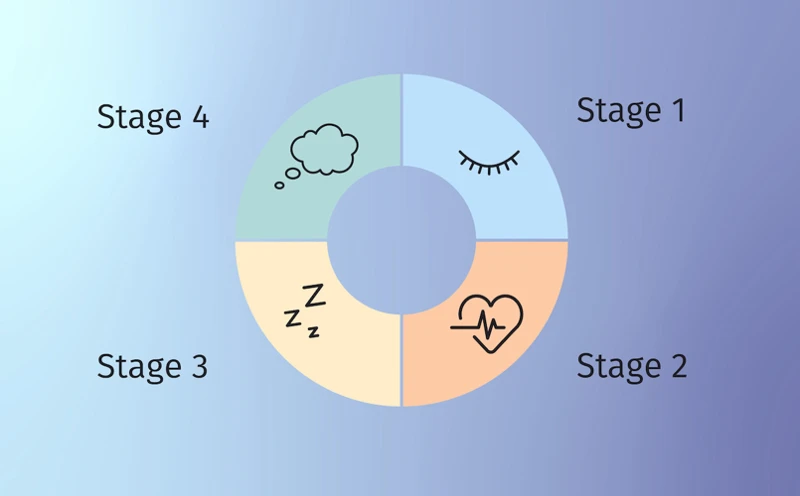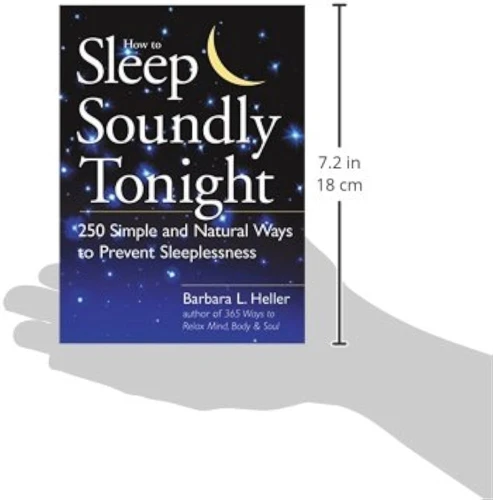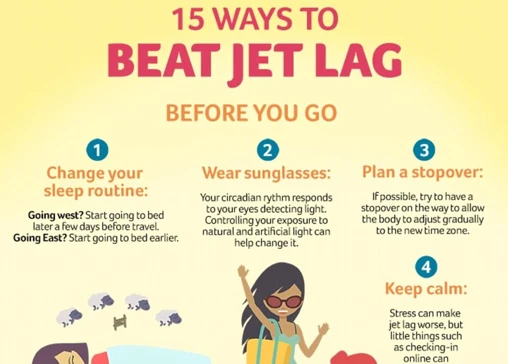Jet lag can be a major bummer for any traveler, causing a range of unpleasant symptoms that can really put a damper on your trip. But fear not, because there are natural remedies that can help alleviate the effects of jet lag and allow you to enjoy your journey to the fullest. In this article, we will explore the causes of jet lag, the common symptoms associated with it, and most importantly, a step-by-step guide to natural remedies that can help you combat jet lag and get back on track. So, if you’re tired of feeling groggy and disoriented after a long flight, keep reading to discover the secrets of beating jet lag naturally.
What is Jet Lag?

Jet lag refers to a temporary disruption of the body’s internal clock, also known as the circadian rhythm, caused by traveling across multiple time zones. When you fly to a different time zone, your body needs to adjust to the new schedule, which can lead to a variety of symptoms. These symptoms occur because your body’s internal clock is still synchronized with your original time zone. This misalignment can result in feelings of fatigue, insomnia, difficulty concentrating, irritability, digestive issues, and even mild depression. The severity and duration of jet lag symptoms can vary from person to person and depend on factors such as the number of time zones crossed and individual resilience. To minimize the impact of jet lag, it’s important to understand the causes and implement natural remedies to help realign your body’s internal clock. Understanding the ins and outs of jet lag will allow you to effectively combat its effects and make the most out of your travels.
jet lag prevention tips
Common Symptoms of Jet Lag

Jet lag can manifest with a range of symptoms that can make you feel off-kilter and disrupt your travel plans. The symptoms can be categorized into two main groups: physical and psychological.
Physical Symptoms: Jet lag can cause fatigue, daytime sleepiness, difficulty sleeping at night, and general malaise. Some people may experience gastrointestinal problems such as indigestion, constipation, or diarrhea. Headaches, muscle aches, and dehydration are also common physical symptoms of jet lag.
Psychological Symptoms: The psychological symptoms of jet lag can include mood swings, irritability, difficulty concentrating, and feeling disoriented or mentally foggy. Some individuals may also experience anxiety or mild depression as a result of the disruption to their sleep-wake cycle.
It’s important to note that the severity and duration of these symptoms can vary from person to person. While some individuals may only experience mild symptoms for a day or two, others may struggle with more pronounced effects for several days. However, by implementing natural remedies to alleviate jet lag, you can help minimize and manage these symptoms effectively. Remember, overcoming jet lag is possible with the right strategies and mindset.
jet lag survival guide tips and tricks
Physical Symptoms
Physical symptoms of jet lag can manifest in various ways, leaving travelers feeling physically drained and unwell. These symptoms can include fatigue, headaches, muscle aches, gastrointestinal discomfort, and general malaise. It is common to experience a lack of energy and motivation, making it difficult to engage in activities or maintain focus. The disruption of the body’s internal clock can also lead to insomnia or excessive sleepiness. It’s important to listen to your body during this time and give it the proper rest and care it needs to recover. Engaging in light stretching exercises or taking short walks can help alleviate muscle tension and promote circulation. Additionally, incorporating relaxation techniques such as deep breathing or meditation can aid in reducing physical tension and promoting overall well-being. If you’re experiencing physical symptoms of jet lag, it’s essential to prioritize self-care and allow your body the time it needs to readjust.
jet lag dreams
Psychological Symptoms
Psychological symptoms of jet lag can be just as challenging as the physical ones. When experiencing jet lag, individuals may find themselves dealing with mood swings, irritability, difficulty concentrating, and even mild depression. The disruption of the body’s internal clock can affect the production of hormones and neurotransmitters, leading to changes in mood and cognitive function. Additionally, the fatigue and sleep disturbances caused by jet lag can further exacerbate these psychological symptoms. It is important to recognize and address these psychological symptoms in order to effectively alleviate jet lag. By implementing natural remedies such as adjusting sleep schedules, staying hydrated, and practicing relaxation techniques, individuals can minimize the impact of jet lag on their mental well-being and enjoy their travel experiences to the fullest.
Causes of Jet Lag

Jet lag is primarily caused by two main factors: the disruption of the body’s circadian rhythm and traveling across multiple time zones.
Disruption of Circadian Rhythm: The circadian rhythm is our body’s internal clock that regulates various biological processes, including sleep-wake cycles, hormone production, and body temperature. It is influenced by external cues, particularly light and darkness. When you travel to a different time zone, your body’s internal clock becomes misaligned with the new local time, leading to jet lag symptoms. The body needs time to adjust and synchronize its internal clock with the new time zone.
Traveling Across Multiple Time Zones: The more time zones you cross during your travel, the more severe the jet lag symptoms are likely to be. This is because traveling across time zones disrupts your body’s natural sleep pattern and throws off its internal clock. The greater the time difference, the longer it usually takes for your body to adjust. For example, traveling east tends to cause more severe jet lag than traveling west, as it requires shifting your internal clock ahead, leading to feelings of fatigue and difficulty falling asleep.
Understanding these causes is essential in finding effective remedies for jet lag. Implementing strategies to address these causes can greatly alleviate and minimize the symptoms of jet lag, allowing you to enjoy your travels without feeling overwhelmingly fatigued or disoriented.
Disruption of Circadian Rhythm
The main cause of jet lag is the disruption of the body’s natural circadian rhythm. The circadian rhythm is a biological process that regulates the sleep-wake cycle, hormone production, body temperature, and other bodily functions. It is influenced by external factors such as sunlight and darkness, which help synchronize our internal clock with the 24-hour day. When we travel across multiple time zones, especially through long-haul flights, our internal clock gets out of sync with the new destination’s local time. This disruption can leave us feeling groggy and disoriented as our body struggles to adjust to the new sleep and wake pattern. The more time zones we cross, the more severe the jet lag symptoms tend to be. To combat this, it’s important to implement strategies that help reset our circadian rhythm and promote quicker adjustment to the new time zone. By understanding the role of the circadian rhythm in jet lag, we can find effective natural remedies to alleviate its effects and get back on track.
Traveling Across Multiple Time Zones
Traveling across multiple time zones is one of the primary causes of jet lag. When you rapidly move from one time zone to another, your body’s internal clock, also known as the circadian rhythm, gets disrupted. The more time zones you cross, the more severe the jet lag symptoms are likely to be. Your body needs time to adjust to the new time zone, and during this transition period, you may experience a range of symptoms including fatigue, insomnia, difficulty concentrating, and digestive issues. The reason for these symptoms is that your body’s internal clock is still synchronized with your original time zone, causing a mismatch between your biological rhythms and the local time of your destination. It typically takes about one day to adjust for every time zone crossed, though this can vary depending on the individual. To mitigate the effects of traveling across multiple time zones and reduce the severity of jet lag, it’s important to implement natural remedies and make adjustments to your routine as discussed in the following sections.
Natural Remedies to Alleviate Jet Lag

1. Adjust Sleep Schedule Before Travel: One of the key ways to combat jet lag is to gradually adjust your sleep schedule before you even embark on your journey. If you’re traveling eastward, try going to bed and waking up earlier a few days before your trip. Conversely, if you’re traveling westward, aim to go to bed and wake up a bit later. This gradual shift in your sleep schedule can help your body adapt to the time zone you’ll be entering and minimize the effects of jet lag.
2. Stay Hydrated: Dehydration can exacerbate the symptoms of jet lag, so it’s essential to stay hydrated throughout your journey. Drink plenty of water before, during, and after your flight to combat the dry air in the cabin. Avoid excessive alcohol and caffeine consumption, as they can dehydrate your body further. Opt for herbal teas or water with lemon instead.
3. Get Natural Sunlight: Exposure to natural sunlight can help reset your body’s internal clock and combat jet lag. Once you arrive at your destination, spend time outdoors during daylight hours. Take a walk, sit by a window, or engage in outdoor activities. This exposure to natural light and vitamin D can help regulate your body’s melatonin production and adjust your circadian rhythm.
4. Avoid Caffeine and Alcohol: Both caffeine and alcohol can disrupt your sleep patterns and worsen the symptoms of jet lag. Try to avoid consuming these substances, especially close to your bedtime. Instead, opt for herbal teas, decaffeinated beverages, or plain water to stay hydrated and promote better sleep.
5. Use Melatonin: Melatonin is a hormone that helps regulate sleep-wake cycles. Taking melatonin supplements before bedtime can assist in resetting your body’s internal clock and alleviating jet lag symptoms. It’s essential to consult with your healthcare provider before starting any new supplement regimen.
6. Stay Active and Exercise: Physical activity can help combat jet lag by boosting your energy levels and promoting better sleep. Engage in light exercises such as stretching, walking, or yoga. Avoid intense workouts close to bedtime, as they can be stimulating and hinder your ability to fall asleep.
7. Practice Relaxation Techniques: Stress and anxiety can worsen the symptoms of jet lag. Incorporate relaxation techniques such as deep breathing exercises, meditation, or gentle stretching to help calm your mind and body. This can aid in promoting better sleep and reducing the effects of jet lag.
By implementing these natural remedies, you can minimize the effects of jet lag and enjoy your travel experiences to the fullest. Remember, everyone’s body is different, so it may take some trial and error to find the combination of remedies that work best for you. Patience and self-care are key when combating jet lag.
1. Adjust Sleep Schedule Before Travel
One of the most effective ways to alleviate jet lag is to gradually adjust your sleep schedule before you embark on your journey. This method helps your body adapt to the new time zone in advance, making the transition smoother. Here’s how you can do it:
1. Plan ahead: Determine the time zone of your destination and calculate the time difference. Start adjusting your sleep schedule at least a few days before your trip to allow your body to slowly acclimate.
2. Gradual change: Gradually shift your sleeping and waking times closer to the schedule of your destination. Start by going to bed and waking up 15-30 minutes earlier or later each day, depending on the direction of travel. Repeat this process over several days until your sleep schedule aligns with your destination.
3. Exposure to light: Expose yourself to natural sunlight or bright artificial light in the morning if you are trying to adjust to an earlier time zone. Similarly, avoid bright light exposure in the evening when trying to adjust to a later time zone. This helps regulate your body’s internal clock.
4. Stay consistent: Once you arrive at your destination, stick to the local schedule. Avoid taking long naps during the day, as they can disrupt your sleep pattern and prolong jet lag. Instead, try to stay awake until your usual bedtime in the new time zone.
By gradually adjusting your sleep schedule before your trip, you can minimize the effects of jet lag and arrive at your destination feeling more refreshed and in sync with the local time.
2. Stay Hydrated
Staying hydrated is crucial when it comes to combating jet lag. The cabin air in airplanes tends to be dry, which can lead to dehydration. Dehydration can exacerbate the symptoms of jet lag, making you feel even more fatigued and sluggish. To prevent this, make sure to drink plenty of water before, during, and after your flight. Avoid excessive caffeine and alcohol, as they can dehydrate your body. When traveling, it’s recommended to carry a refillable water bottle so you can hydrate regularly. Additionally, using a hydrating facial mist or nasal spray can help keep your skin and nasal passages moisturized. By staying properly hydrated, you can help your body function optimally and minimize the effects of jet lag.
3. Get Natural Sunlight
One effective natural remedy for alleviating jet lag symptoms is to get natural sunlight. Exposure to natural light helps regulate your body’s internal clock and signals to your brain that it’s time to be awake. When you arrive at your destination, make it a point to spend time outdoors during daylight hours. Take a walk, sit by a window, or relax in a park to absorb the sunlight. This will help your body adjust to the new time zone more quickly. Additionally, natural sunlight provides vitamin D, which has numerous health benefits and can help improve your mood. So, make sure to prioritize getting some sunlight when you reach your destination to help reset your body’s internal clock and minimize the effects of jet lag.
4. Avoid Caffeine and Alcohol
To alleviate jet lag, it’s important to avoid consuming caffeine and alcohol, especially during your travel and shortly before bedtime. Both caffeine and alcohol can disrupt your sleep patterns and exacerbate the symptoms of jet lag. Caffeine is a stimulant that can make it difficult for you to fall asleep and stay asleep, further disrupting your body’s attempts to adjust to the new time zone. On the other hand, alcohol may initially make you feel drowsy, but it can interfere with the quality of your sleep, leading to a less restful and rejuvenating slumber. Instead of reaching for that cup of coffee or alcoholic beverage, opt for herbal teas or water to stay hydrated and calm. Herbal teas like chamomile or lavender can even have a calming effect on your body, making it easier to relax and adjust to the new time zone. Avoiding caffeine and alcohol will support healthy sleep patterns and aid in minimizing the effects of jet lag.
5. Use Melatonin
Melatonin is a hormone naturally produced by the body that helps regulate sleep-wake cycles. Taking melatonin as a supplement can be an effective way to alleviate jet lag symptoms and adjust to a new time zone. When traveling, it is recommended to take melatonin at the appropriate local bedtime, helping your body adjust to the new sleep schedule more quickly. The dosage of melatonin will depend on the individual and should be discussed with a healthcare professional. It is important to note that melatonin supplements may cause drowsiness, so it is advised to take them only when you have enough time to sleep. Additionally, melatonin supplements are not suitable for everyone, so it is best to consult with a healthcare professional before starting any new supplement regimen. Using melatonin as a natural remedy can help reset your internal clock and reduce the symptoms of jet lag, allowing you to enjoy your travels without feeling overly fatigued.
- Take melatonin at the appropriate local bedtime.
- Discuss the appropriate dosage with a healthcare professional.
- Take melatonin only when you have enough time to sleep.
- Consult with a healthcare professional before starting any new supplement regimen.
6. Stay Active and Exercise
Staying active and exercising is an effective way to combat the symptoms of jet lag. Engaging in physical activity helps increase blood flow and oxygen intake, which can boost your energy levels and reduce feelings of fatigue. Here are some tips to incorporate exercise into your travel routine:
1. Onboard Exercises: During long flights, it’s important to get up and stretch your muscles. Take short walks up and down the aisle, do some simple stretches while standing or seated, and rotate your ankles and wrists to improve circulation.
2. Outdoor Activities: If possible, engage in outdoor activities upon arrival at your destination. Take a walk or jog in a nearby park or explore the city on foot or by bike. Not only will this help you stay active, but it will also expose you to natural sunlight, which aids in resetting your internal clock.
3. Hotel Facilities: Many hotels are equipped with fitness centers or swimming pools. Take advantage of these facilities to engage in aerobic exercises, strength training, or swimming. Exercise releases endorphins, which can help alleviate jet lag symptoms and improve your mood.
4. Yoga or Stretching: Practicing yoga or stretching exercises can help relax your body and reduce muscle tension, which is crucial after long periods of sitting during travel. Incorporate calming poses and deep breathing techniques to promote relaxation and reduce stress.
Remember, it’s important to listen to your body and exercise at a pace that feels comfortable. Start with light activities and gradually increase intensity as your body adjusts to the new time zone. Staying active and exercising not only helps alleviate jet lag symptoms but also contributes to your overall well-being during travel.
7. Practice Relaxation Techniques
When it comes to combating jet lag, practicing relaxation techniques can be incredibly beneficial. Jet lag can take a toll on both your physical and mental well-being, and relaxation techniques can help alleviate some of the symptoms. One effective technique is deep breathing exercises, which can help promote relaxation and reduce stress. To practice deep breathing, find a quiet and comfortable place to sit or lie down. Close your eyes and take a deep breath in through your nose, allowing your belly to expand. Hold the breath for a few seconds, then exhale slowly through your mouth. Repeat this process several times, focusing on your breath and letting go of any tension or anxiety. Another relaxation technique is progressive muscle relaxation, where you systematically tense and relax each muscle group in your body. Start by tensing your toes and feet for a few seconds, then release the tension and feel the relaxation. Gradually move up your body, tensing and relaxing each muscle group, including your legs, abdomen, arms, and face. This technique can help release muscle tension and promote overall relaxation. Additionally, engaging in activities such as meditation, yoga, or tai chi can also help calm the mind and promote a sense of well-being. These practices can help you relax, reduce anxiety, and promote better sleep, all of which can aid in alleviating the symptoms of jet lag. So the next time you find yourself struggling with jet lag, give these relaxation techniques a try and experience the benefits for yourself.
Other Tips to Minimize Jet Lag
1. Adjust to Local Time Immediately: Upon arrival at your destination, it’s crucial to adjust your activities and sleeping patterns to align with the local time as quickly as possible. This means keeping yourself awake until it’s an appropriate time to sleep in the new time zone. Avoid taking naps during the day, as this can prolong the adjustment period.
2. Avoid Heavy Meals: Consuming heavy or greasy meals before or during the flight can exacerbate the symptoms of jet lag. Instead, opt for lighter, well-balanced meals that are rich in nutritious foods. Avoiding heavy meals can also help prevent digestive issues that are commonly associated with jet lag.
3. Stay Hydrated: Dehydration can intensify the effects of jet lag, so it’s important to stay hydrated throughout your journey. Drink plenty of water before, during, and after the flight, and limit your intake of caffeinated and alcoholic beverages as they can contribute to dehydration.
4. Create a Comfortable Sleep Environment: When it’s time to sleep in the new time zone, make sure your sleep environment is comfortable and conducive to rest. Use earplugs, an eye mask, or white noise machines to block out any disruptive sounds or light that could interfere with your sleep.
5. Minimize Exposure to Screens: The blue light emitted by electronic screens can interfere with your body’s natural sleep cycle. To help minimize the effects of jet lag, avoid using screens such as smartphones, tablets, and laptops before bed. Instead, engage in relaxing activities such as reading a book or practicing meditation.
Implementing these additional tips alongside the natural remedies mentioned earlier can greatly minimize the impact of jet lag and help you adjust to the new time zone more smoothly, allowing you to make the most of your travels and enjoy your trip to the fullest.
1. Adjust to Local Time Immediately
1. Adjust to Local Time Immediately:
One of the most crucial steps in combating jet lag is to adjust to the local time as soon as you arrive at your destination. This means that you should align your daily routine, including sleeping, eating, and activities, with the local time zone. Resetting your circadian rhythm to match the local time zone will help your body adapt more quickly and minimize the symptoms of jet lag. Here are a few tips to help you adjust:
– Upon arrival, try to resist the temptation to take a nap, especially if it’s not within the local waking hours. Push through the fatigue and stay awake until it’s an appropriate time to sleep.
– Expose yourself to natural sunlight during the daytime hours. This can help regulate your body’s internal clock and promote wakefulness.
– If you arrive in the evening, try to stay awake until it’s a reasonable bedtime in the local time zone. This will help you establish a new sleep pattern.
– Use an eye mask and earplugs to create a conducive sleep environment and block out any disturbances that may interfere with your ability to fall asleep according to the local time.
– Set an alarm to wake up at the desired local time, even if you didn’t sleep as much as you would have liked. It’s important to get your body accustomed to the new schedule.
By adjusting to the local time immediately, you can help your body adapt and minimize the effects of jet lag, allowing you to make the most of your trip.
2. Avoid Heavy Meals
2. Avoid Heavy Meals:
One important tip to minimize jet lag is to avoid consuming heavy meals during your travel. Eating large and heavy meals while on a flight can make you feel sluggish and increase feelings of fatigue. This is because your body has to work harder to digest the food, diverting energy away from other bodily functions. Instead, opt for lighter and healthier options that are easy to digest. Choose fruits, vegetables, lean proteins, and whole grains. These foods provide the necessary nutrients without burdening your digestive system. Additionally, avoid foods that are high in sugar and processed carbohydrates, as they can cause a spike in blood sugar levels, leading to a crash later on. Maintaining a balanced and nutritious diet during your travel will support your overall well-being and help to minimize the symptoms of jet lag.
Conclusion
In conclusion, jet lag can be a challenging aspect of long-distance travel, but there are natural remedies available to alleviate its symptoms. By adjusting your sleep schedule before traveling, staying hydrated, getting natural sunlight, avoiding caffeine and alcohol, using melatonin, staying active through exercise, and practicing relaxation techniques, you can significantly reduce the impact of jet lag on your body and mind. Additionally, adjusting to the local time immediately upon arrival and avoiding heavy meals can further aid in minimizing jet lag symptoms. It is important to listen to your body and adapt to the new time zone gradually. Remember, everyone’s experience with jet lag is unique, so it may take some trial and error to find the remedies that work best for you. By implementing these natural remedies and tips, you can enhance your travel experience and make the most out of your adventures without being hindered by jet lag. Bon voyage!
Frequently Asked Questions
1. Can jet lag affect my physical health?
Yes, jet lag can have physical effects on your body. It can cause fatigue, headaches, digestive issues, muscle aches, and general discomfort.
2. How long does it take to recover from jet lag?
The recovery time from jet lag varies for each individual. It can take anywhere from a few days to a week for your body to fully adjust to the new time zone.
3. Does age impact the severity of jet lag?
Age can play a role in the severity of jet lag. Older adults may experience more intense symptoms and take longer to recover compared to younger individuals.
4. Can I prevent jet lag entirely?
While it’s difficult to prevent jet lag entirely, there are steps you can take to minimize its effects. These include adjusting your sleep schedule before travel and staying hydrated.
5. Does the direction of travel affect jet lag?
Yes, the direction of travel can impact jet lag. Traveling eastward tends to be more challenging for the body to adjust to due to “losing” time, while traveling westward is generally easier.
6. Does the duration of the flight affect jet lag?
The duration of the flight itself doesn’t directly impact jet lag. However, longer flights that involve crossing multiple time zones can intensify jet lag symptoms.
7. Is it helpful to take naps when experiencing jet lag?
While napping can provide temporary relief, it’s generally recommended to avoid long naps when experiencing jet lag. Instead, try to adjust to the local time and establish a regular sleep schedule.
8. Can outdoor exercise help alleviate jet lag symptoms?
Yes, getting outdoor exercise and exposure to natural sunlight can help regulate your body’s internal clock and reduce the severity of jet lag symptoms.
9. Can certain foods aggravate jet lag symptoms?
Heavy and greasy meals can aggravate jet lag symptoms as they can disrupt digestion and make you feel sluggish. It’s best to opt for light, nutritious meals to provide your body with energy.
10. Are there any supplements that can help with jet lag?
Melatonin supplements can be effective in regulating sleep patterns and minimizing jet lag symptoms. However, it’s important to consult with a healthcare professional before starting any new supplements.








